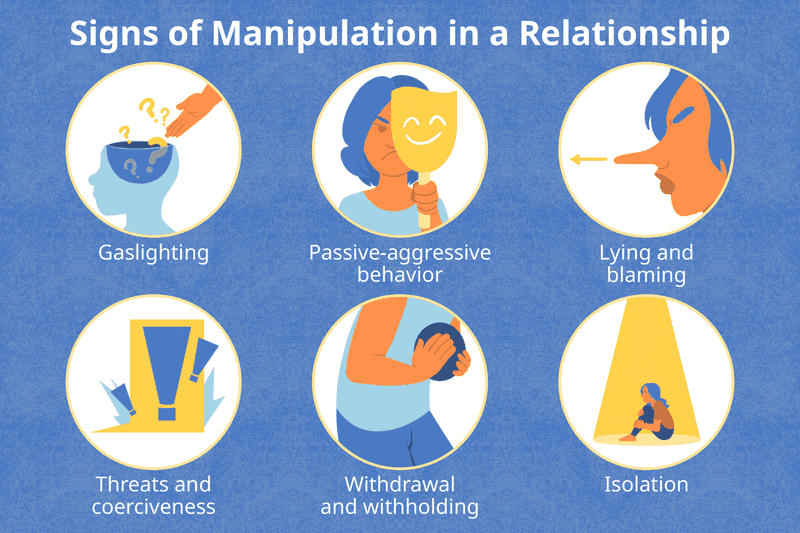Questions are often seen as simple tools for gathering information. However, some questions are designed to manipulate and control. These seemingly innocent queries can be subtle tactics used to sway opinions, instigate doubt, or exert control. Understanding these psychological manipulation tactics empowers individuals to recognize and respond appropriately. Below are nine questions that disguise manipulation beneath their innocent façade.
1. “Why are you so sensitive?”

“Why are you so sensitive?” is a question that subtly shifts the blame onto the person being asked. By framing someone’s emotional response as an overreaction, it undermines their feelings. This question often catches people off guard, leading them to doubt their own emotions.
The undertone implies they are at fault for feeling deeply. It’s a manipulative tactic that can destabilize confidence and self-worth. When confronted with this question, one may feel pressured to justify their emotions rather than addressing the root cause. Such questions can erode relationships by creating an environment of blame and defensiveness.
2. “Don’t you trust me?”

The phrase “Don’t you trust me?” is loaded with emotional manipulation. It implies that doubt is a personal failing rather than a natural response to suspicious behavior. This question often corners the recipient into conceding trust, regardless of the circumstances.
It preys on the human desire for harmony and peace, making it difficult to question motives. By suggesting that mistrust is unwarranted, it can suppress legitimate concerns. This tactic is common in both personal and professional settings, where trust should be earned, not coerced. Recognizing this manipulation is the first step to maintaining healthy boundaries.
3. “Are you really going to wear that?”

“Are you really going to wear that?” can be a subtle dig at one’s personal choices, wrapped in feigned casualness. This question plants seeds of doubt about self-image and decisions, often making one second-guess their choices.
It suggests disapproval without direct confrontation, giving the speaker an upper hand. Such questions can chip away at self-esteem by insinuating that one’s judgment is flawed. Whether it’s clothing, hairstyles, or lifestyle choices, this query can mask insecurity or control issues. Standing firm against this manipulation fosters self-confidence and independence without needing external validation.
4. “What would people think?”

“What would people think?” often masquerades as concern but can be a manipulative tactic to enforce conformity. This question leverages societal pressure, urging individuals to align with perceived norms or risk disapproval.
It plays on fears of judgment and rejection, making one overly cautious about their actions. By invoking external opinions, this query can stifle authenticity and creativity. It’s important to recognize this tactic and prioritize personal values over imagined societal expectations. Reclaiming one’s autonomy from such manipulation encourages genuine self-expression and reduces anxiety linked to others’ perceptions.
5. “Can’t you take a joke?”

“Can’t you take a joke?” is a classic line used to dismiss uncomfortable reactions to inappropriate humor. This question shifts blame to the recipient, implying that their discomfort is due to a lack of humor.
It serves to invalidate genuine feelings by framing the issue as an overreaction. Often used to excuse offensive remarks, it can create a toxic environment where harmful comments are normalized. Identifying this tactic is crucial to maintaining respectful interactions. Humor should never be a cover for insensitivity or prejudice, and standing up against such manipulation preserves personal dignity.
6. “Why didn’t you just…?”

The question “Why didn’t you just…?” subtly criticizes past decisions, suggesting simple solutions to complex problems in hindsight. This can make the recipient feel inadequate for not foreseeing an obvious fix.
It minimizes the challenges faced and dismisses the context in which decisions were made. Such questions can undermine one’s confidence in their problem-solving abilities, fostering self-doubt and regret. Recognizing this as a manipulation tactic helps in valuing one’s judgment and experience. Constructive feedback should foster growth rather than diminish past efforts with oversimplified hindsight suggestions.
7. “Are you sure you want to do that?”

“Are you sure you want to do that?” is a seemingly innocuous question that can insinuate doubt about one’s choices. It plants seeds of uncertainty, often leading individuals to question their plans or instincts.
Such queries can be disempowering, making one second-guess decisions that were previously confident. This manipulation is subtle, often disguised as genuine concern or advice. It’s essential to differentiate between helpful guidance and undermining doubt. Trusting one’s intuition and decision-making process is vital to personal growth and confidence. Recognizing and resisting such tactics can strengthen resolve and self-assurance.
8. “What’s wrong with you?”

“What’s wrong with you?” is a question that instantly puts the recipient on the defensive. It implies that a personal flaw is causing the issue, rather than the situation or actions of others.
This question can be deeply damaging, particularly to those already grappling with self-esteem issues. It reinforces negative self-perceptions and can lead to feelings of isolation. Instead of fostering understanding, it alienates and belittles. Responding to such manipulation requires confidence in one’s self-worth and a commitment to positive self-talk. Surrounding oneself with supportive individuals can counteract this damaging tactic.
9. “Why can’t you be more like…?”

“Why can’t you be more like…?” is a comparison that can undermine individuality and self-esteem. This question sets a standard based on someone else, implying that the person asked is lacking.
Such comparisons can breed resentment and diminish self-worth, leading to unhealthy competition or feelings of inadequacy. It’s a manipulative tactic that discourages self-acceptance and unique expression. Embracing one’s own path and rejecting unfair comparisons is crucial for personal growth. Encouraging environments that celebrate individuality help counteract this detrimental question. Recognizing one’s strengths and potential fosters confidence and self-belief.

